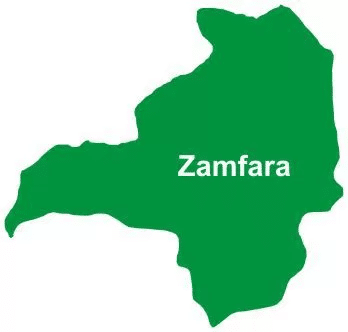Reps move to impose time limit on ministers’ nomination

… as presidential inauguration bill scales 2nd reading in the Senate
The House of Representatives on Thursday passed for second reading a bill that nomination for appointment of ministers should not be later than 30 days from when the president takes oath of office.
The bill also seeks to provide that nomination for appointment of commissioners shall be made not later than 30 days from the date a governor is sworn in.
This is even as the bill for an Act to provide for the inauguration of the president and vice president, also known as Presidential Inauguration Bill, scaled second reading in the Senate.
Sponsored by the Deputy President of the Senate, Senator Ike Ekweremadu, the Presidential Inauguration Bill, seeks to align presidential inauguration in the country with international best practices as obtained in the United States of America (USA), and many other democracies.
Presenting the bill for the time limit on the nomination of ministers, in the House of Representatives, yesterday, Hon. Solomon Adaelu (PDP-Abia), said that the need to ensure improved efficiency in governance prompted the amendment bill which sought to alter sections 147 and 192.
According him, sections 147 and 192 of the constitution are not explicit as to when the president or governors are to make the nominations for appointment of ministers and commissioners.
“Consequently, it is feasible and practically necessary to impose a constitutional time limit for a president to present nominated ministers and their portfolios to the senate.
“Preferably, 30 days’ time limit after swearing in will be ideal as it provides sufficient time for the president to settle down into governance and carry out final vetting of his nominations.
“And also ensure that the running of governance is not necessarily delayed or held up by the absence of ministers to run the various government departments,’’ Adaelu said.
He emphasised that experience from other developed countries revealed that the chief executive already had clear nomination list prior to swearing in.
“And this is forwarded to the parliament within a short time of inauguration.
“This practice should be constitutionally mandated in Nigeria to improve the efficiency of governance upon a change in government.
“The experience of 2015 whereby it took almost four months after swearing in for the president to forward nominated names to the legislature resulted in a serious setback for governance.
“This adversely affected the serious handling of pressing national issues in the country; this must be prevented by constitutionally imposing time limit,’’ Adaelu said.
He said that attaching portfolios would facilitate effective screening and deliberation by the legislature on the competence of the nominated person for the particular role he would play in government.
“This will greatly reduce the fixing of round pegs in square holes which is the bane of governance in Nigeria.
“The discretion of the president to assign people to whatever department he deems fit after screening by the legislature is unhealthy as the legislature will not be able to adequately assess his suitability for that role,’’ Adaelu said.
The Speaker, House of Representatives, Mr. Yakubu Dogara, referred the bill to special ad hoc Committee on Constitution Review.
Leading the debate on the general principles of the Presidential Inauguration Bill in the Senate, Ekweremadu explained that the Bill seeks to move the inauguration of the president and the vice president from the Eagles Square, to within the precincts of the National Assembly, but without precluding the Chief Justice of Nigeria from swearing them.
Addressing the Senate, Ekweremadu explained: “You would recall that Nigeria transformed from operating a Parliamentary-Westminster system- to the extant Presidential system modeled after the U.S. Presidential system of government in 1979 and continued to the 4th Republic from 1999 to date.
“You would also recall that from the commencement of the 4th Republic to 2015 the inauguration or swearing-in of the newly elected President and the Vice President of the Federal Republic of Nigeria had been taking place at the Eagle Square. This practice of inauguration of the President and the Vice President at the Eagle Square is at variance with what transpires in the United States and other democracies where their Presidents and Vice Presidents are inaugurated within the precincts of their Parliaments.
“Thus, as you can see, this is a misnomer. The popular or international best practice is for the leadership of the Executive to be inaugurated within the premises of the Legislature, who are perceived as the true representatives of the people. Suffice it to say that this practice does not preclude or extricate the Chief Justice of Nigeria from administering the Oath of Office on the two.”
The Deputy President of the Senate, noted that the Bill further provides for the inauguration ceremony of the President-elect and the Vice President-elect to take place at the Arcade of the National Assembly, where the people are represented.
He said it also provides for the setting up of a Presidential Inauguration Committee, which shall consist of a serving Member of the National Assembly as Chairman, six members drawn from the Legislature, two from the Executive, two from the Judiciary, and two from the Civil Society.
Section 7 provides for order of Procession with the President leading, while former Presidents, former Heads of State, former Heads of Federal Government, former Vice Presidents, Former Senate Presidents, former Speakers of the House of Representatives, and former Chief Justices of the Federation, follow, accordingly.
Meanwhile, the Presidential Inauguration Bill was earlier sponsored by Senator Jubril Aminu in 2009 and passed by the 6thNational Assembly, but did not receive presidential assent.








